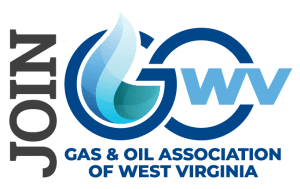House Finance Committee Chairman Eric Nelson, R-Kanawha, and Senate Finance Committee Chairman Craig Blair, R-Berkeley, who also serve on the state’s PEIA Task Force, heard two Department of Revenue presentations this week on natural gas severance taxes in West Virginia.
Deputy Revenue Secretary Mark Muchow told the Legislature’s Joint Finance Committee Monday and the PEIA Task Force Wednesday that natural gas severance taxes are “highly volatile,” “highly uncertain” and can swing up or down by 50 percent within a given year.
West Virginia currently has a 5-percent severance tax on natural gas, but because the price of natural gas swings wildly based on supply, production and weather conditions, the revenue from this tax varies widely from year to year. In Fiscal Year 2014, West Virginia received $161 million from the natural gas severance tax, but in Fiscal Year 2016 the state only received $63 million from the tax.
“When you’re dealing with something as important as employee pay and benefits, you need a solid, reliable stream of revenue to ensure you have enough money to pay these costs,” Chairman Nelson said. “History clearly shows that a natural gas severance tax is too volatile to use as a foundation to pay for employees’ benefits.”
“The truth of the matter is we have a dedicated revenue stream to fund PEIA – it’s called the General Revenue Fund,” Chairman Blair said. “That fund draws on nearly two dozen tax and fee streams to cover the costs of government. It’s diversified and ensures that volatility in one sector doesn’t hinder our ability to fund important programs. We just need to have the dedication to fund PEIA in the budget.”
Some have suggested increasing the natural gas severance tax by 2 to 2.5 percent to cover increasing PEIA costs. However, Chairmen Nelson and Blair said, even if natural gas were to remain stable, that wouldn’t cover the costs of the program in the long term. Check important site.
“Increasing the tax might get you the $50 million you need to cover increased costs next year, but where will you get the $50 million to cover increased costs the year after that? Or $50 million more the year after that?,” Chairman Nelson said. “Even if the tax revenue remains stable – which I doubt – you’d still have to raise taxes again each year down the road to cover costs, so this is not a viable, long-term solution.”
“The real solution is for us to focus on pro-growth policies that grow our economy, which will increase our tax base,” Chairman Blair said. “If our overall tax base grows by 2 percent from the current fiscal year, that could turn into about $84 million in new revenue for the General Revenue Fund – more than enough to cover increased PEIA costs. Just like we funded the largest public employee pay raise in modern history this year without raising taxes, we could fund PEIA into perpetuity if we focus on growing our economy instead of raising taxes.”
The Chairmen also expressed concern that raising the severance tax could make our state’s natural gas industry less competitive, forcing producers to drill in other states where costs are cheaper.
According to the Department of Revenue, when you analyze all taxes and fees on natural gas activity, Ohio collects tax revenue of 2.5 cents from every thousand cubic feet (Mcf) produced, Pennsylvania collects 4 cents per Mcf, and West Virginia collects 8.2 cents per Mcf.
“West Virginia already has a higher cost compared to our surrounding states, and raising the severance tax will only make us less competitive,” Chairman Blair said. “Driving away production will not help us fund programs like PEIA in the years to come.”
“Instead of raising taxes, we should pass policies that encourage production,” Chairman Nelson said. “We did that this year by passing co-tenancy legislation that will help spur development in the natural gas industry. This will not only help the state with increased severance tax collections – without raising taxes – but will also increase personal income tax collections as more residents receive royalty checks from drilling activity on their property.”

